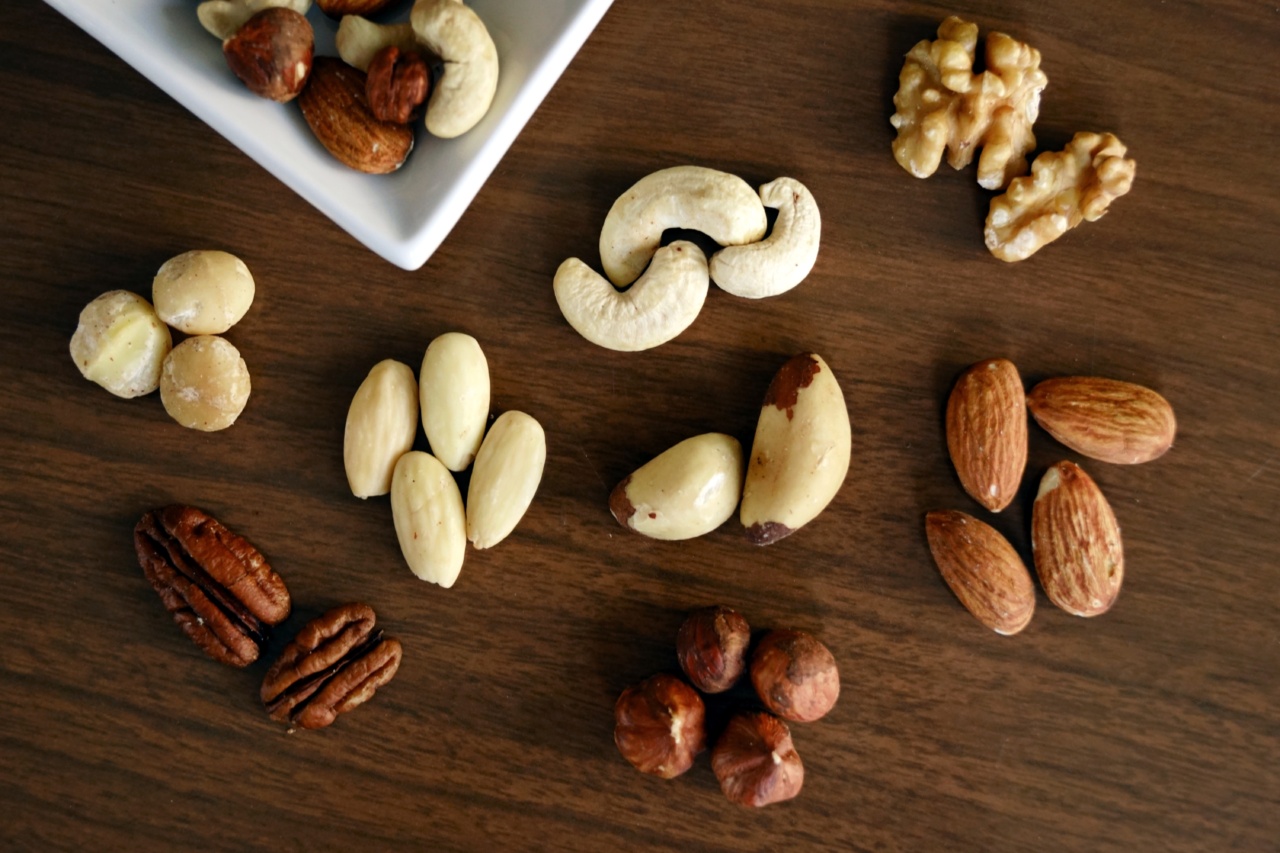Nuts are a popular snack that has been consumed by humans since ancient times. Not only are they delicious, but also a rich source of various nutrients essential for our body.
A variety of nuts, such as almonds, walnuts, pistachios, hazelnuts, cashews, pecans, and peanuts, have different nutritional profiles but are all considered healthy.
Calories
Nuts are calorie-dense, meaning consuming too many can lead to weight gain. However, they are still an excellent source of energy for our body. The amount of calories per serving depends on the type and quantity of nuts.
For example, one ounce (28 grams) of roasted almonds has about 161 calories while the same serving of roasted cashews has approximately 157 calories.
Protein
Nuts are a great source of plant-based protein, ideal for vegans and vegetarians. Some nuts have a higher protein content than others. For instance, almonds, pistachios and peanuts contain more protein than cashews and hazelnuts.
One ounce of almonds has around 6 grams while the same amount of cashews has approximately 4.3 grams of protein.
Fat
Fat content in nuts varies across different types. Unsaturated fats such as monounsaturated and polyunsaturated fats are considered healthier than trans and saturated fats.
Monounsaturated fats are found in almonds, cashews, hazelnuts and pistachios, while polyunsaturated fats can be found in walnuts and pecans.
Carbohydrates
Nuts are low in carbohydrates compared to other snacks like chips and cookies. For those who count their carbs intake, nuts are a better choice of snack. One ounce of almonds has about 6 grams of carbohydrates.
Hazelnuts, pistachios and pecans also have a low carbohydrate content. However, peanuts and cashews contain higher levels of carbohydrates.
Fiber
Nuts are also a great source of dietary fiber, essential for a healthy gut. One ounce of almonds has approximately 3.5 grams of fiber. Other good sources include pistachios, pecans, and hazelnuts.
Although not as high in fiber as other nuts, cashews and peanuts still contain fiber.
Vitamins and Minerals
Nuts are also rich in vitamins and minerals that our body needs. For example, almonds are an excellent source of vitamin E, which plays a vital role in maintaining healthy skin. Walnuts are rich in omega-3 fatty acids, which is essential for brain health.
Hazelnuts are a great source of folate, a B-complex vitamin needed for healthy red blood cells. Peanuts contain high levels of niacin, which helps our body in breaking down food into energy.
Antioxidants
Nuts are also loaded with antioxidants, which are needed to protect our cells from damage caused by free radicals. Antioxidants are important for maintaining a healthy immune system and overall health.
Walnuts, almonds and pecans have the highest antioxidant content among nuts.
How to incorporate nuts into your diet?
Nuts are tasty, convenient and easy to incorporate into your diet. They can be added to salads, smoothies, and soups or eaten as a standalone snack. Nuts and nut butter can also be a great addition to your breakfast.
You can add chopped nuts to your oatmeal or cereal or spread nut butter on your toast.
Conclusion
Nuts are an excellent source of various nutrients essential for our body. They have high calorific value, protein, healthy fats, and low carbohydrates.
They also contain vitamins, minerals, fiber, and antioxidants, which are necessary for maintaining good health.































